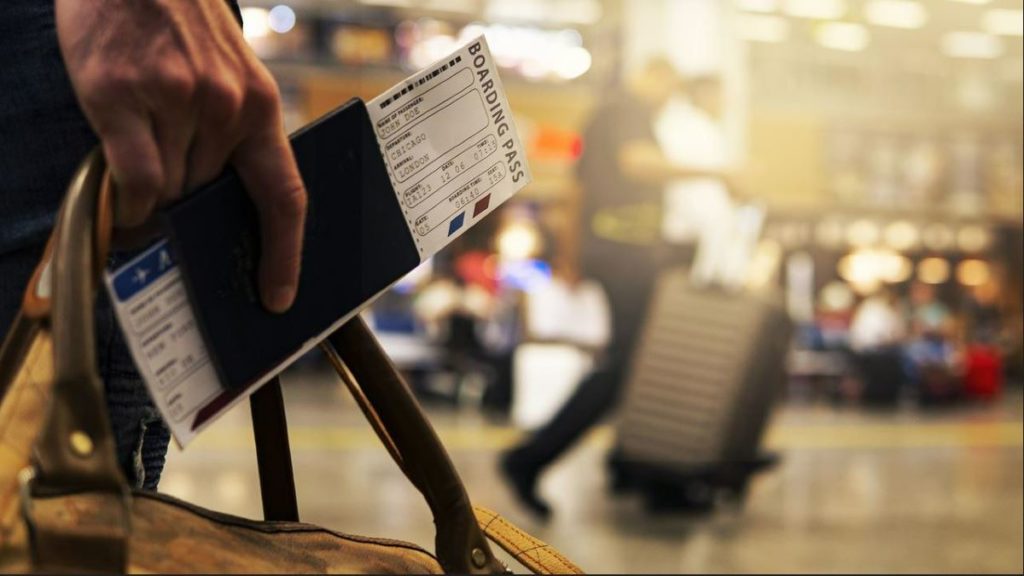Featured image by Joshua Woroniecki from Pixabay
Business trips can be a bit draining. Even a short business trip can take a lot out of you. There are ways to make them more productive and use the trip to get the job done without having to sink too much energy into it.
As is the case with most productivity efforts, the key is to plan and anticipate your needs in advance. That way you won’t get sidetracked and you can use even a short business trip to have effective meetings and achieve your goals.
Prepare Your Itinerary in Advance
Everyone involved in any meeting you schedule should be aware of your itinerary. In this way, they can prepare and plan accordingly.
It’s also useful to have a few preparatory meetings during which you can hash out the itinerary for your short trip with your business colleagues. Having the outline will make the meetings more productive and allow you to have more free time during the trip itself.
Everyone involved should have a copy of the notes and the documents required for your meeting. It is a bit more busywork but it can pay off in the long run.
RELATED ARTICLE: WANT MORE PRODUCTIVITY? USE THESE 4 TOOLS
Rent a Car Even for a Short Business Trip
Driving a car during a business trip gives you much more flexibility and a chance to set your own schedule. It’s also a more comfortable way to travel and one that allows you to stay longer if needed.
If you plan to drive abroad, you’ll need an international driving permit from the IDA (International Drivers Association). This document is easy enough to get and it lasts for a year, after which you’ll need to renew it, so it’s more than enough for a business trip. The permit can only be issued and is only valid if you also have a national driving license with you.
Be Careful How You Pack for a Business Trip
If you know how long your business trip will last and what your itinerary looks like, you can travel light and only bring the items you know you’re going to need. This makes traveling easier and allows you to waste as little time with luggage as possible.
Common sense still applies, though. You should try to prepare for something going wrong. An extra suit or shirt isn’t a waste but a useful item that can save you some embarrassment in case you need a quick change of clothing.
Don’t Waste Flight Time
If a business trip requires a longer flight, you should make use of the time you spend flying. Many travelers see this as inconvenient but if you know how long you have on your hands and if you know that there are no distractions you can get something done in the process.
In fact, this may be the best time to do some light administrative work that you might otherwise overlook while you’re focused on more collaborative work. In general, blocking portions of your time for focusing on certain types of work usually allows for the most productive labor. This is a way to give all your attention to the tasks at hand.
Mingle
This might not seem like productive advice, but it’s important to keep in mind that business meetings aren’t only about achieving what you’ve come together to do. The meeting itself is almost beside the point, in fact. This is because the meeting allows you to exchange ideas and get to know your coworkers.
The schedule for any business trip should leave room for spending time together and mingling. This can lead to new ideas and spontaneous collaboration. Or it can help you get to know your business partner in a more personal light. Both of those are features and not just side effects of the meeting.
Leave Time for Q and A
A well-scheduled meeting with a clear itinerary is a productive meeting. However, there are also benefits of letting everyone involved ask questions and propose their own ideas. A useful idea can usually come out of these sessions even if it takes a while.
This doesn’t mean that this part of the meeting should take over the schedule you’ve made. It needs to be contained in the timeframe and format that you outlined before the meeting. It’s also useful if rank and position aren’t important during this part of the meeting.
It’s Not Over When The Meeting Is Over
A meeting isn’t over when the formal part of the meeting itself is. There are notes and documents produced during the meeting as well as certain follow-up issues that need to be resolved. It’s up to those who organize the trip to make sure that these affairs are in order as well.
RELATED ARTICLE: 4 STRATEGIES FOR MORE PRODUCTIVE COMPANY MEETINGS
Get Feedback After Every Business Trip
It can also be useful to get some feedback from the participants about your short trip and its benefits for your business —or lack thereof. This can help you improve and expand on any future events you may take part in. It’s better to keep such surveys anonymous in order to get the most out of them and not put anyone on the spot.
RELATED ARTICLE: DISRUPTIVE WEB TECHNOLOGIES TO KEEP YOU AHEAD OF THE PACK
